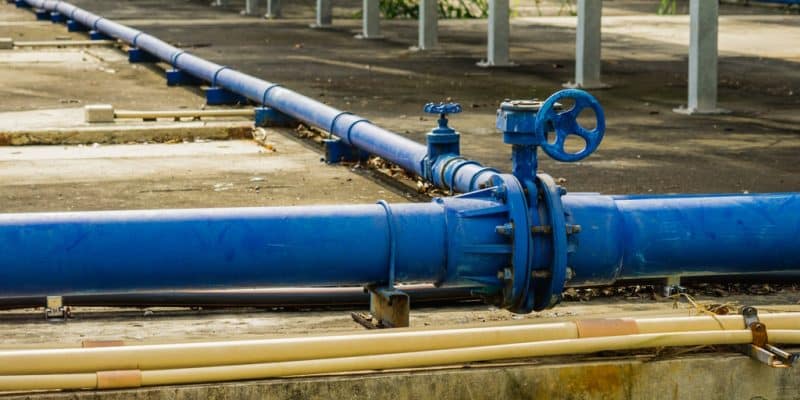As the drought worsens in Nouakchott, the Mauritanian capital has been facing a new problem since the beginning of August 2023: drinking water taps have almost completely dried up. The drinking water network supplying Nouakchott is said to be experiencing problems with the treatment of raw water. In response to this situation, the government of the Islamic Republic of Mauritania has announced a number of measures, including an increase in water treatment capacity.
Several large districts of Nouakchott have been without drinking water for almost a month, since the beginning of August 2023. This situation, which has rapidly turned into a crisis, stems from the inability, for several weeks now, of the network set up as part of the Nouakchott drinking water supply project from the Senegal River (Aftout Essahili), to treat the raw water. As a result, people are thirsty. “The worst affected neighbourhoods are those on the outskirts of the city, where the poorest residents are facing a critical water shortage during this period of intense heat”, says the Alliance for Justice and Democracy and the Renewal Movement (AJD/MR).
In addition to dehydration, which can lead to memory loss, fatigue and digestive problems, prolonged shortages of drinking water in Nouakchott will also have an impact on sanitation, accelerating the spread of water-borne diseases such as cholera, malaria, lead poisoning and diarrhoea.
The government’s response
According to Bah Vall Mahfoudh, Deputy Director of the National Water Company (SNDE), the difficulty in treating water from the Senegal River is due to the fact that it has become muddy. The Aftout Essahili project, financed to the tune of 41 million dollars by the African Development Fund (ADF), is based on exploiting this watercourse to meet the drinking water needs of the inhabitants of Mauritania’s capital until 2030.
Alongside the local population, civil society is denouncing one crisis too many, and calling on the Mauritanian government to take urgent and appropriate measures to alleviate the shortages, including ambitious policies to guarantee permanent access to drinking water for the entire population. The government of the West African country replied that “solutions are being considered”. These include increasing water treatment capacity in Nouakchott and diversifying water supply sources, such as desalination of sea water.
Pending implementation of the new measures promised by the Mauritanian government, SNDE has put in place temporary solutions to Nouakchott’s new water crisis. “We started by alternating distribution by district, which meant that some districts had water for a few days. A fleet of tankers was also mobilised to help out the outlying districts”, the SNDE points out.
Inès Magoum






